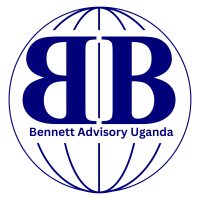ESSENTIAL JOB RESPONSIBILITIES
RESILIENCE CAPACITY BUILDING
● In collaboration with other Resilience Knowledge Hub members, lead the development of a capacity building plan for ZBRF stakeholders and implement that plan.
●Identify technical gaps in integrating resilience and landscape thinking into program design and implementation among ZBRF partners.
● Lead the documentation, measurement of progress and sharing of best practices of the resilience and landscape capacity building initiatives to ensure quality program and knowledge sharing.
● Lead the development, refinement and contextualization of resilience and landscape training curriculum targeting ZBRF partners to improve both technical and operational quality of resilience programming
● Collaborate with other Resilience Knowledge Hub members on developing innovative mechanisms to collect and share program learnings in various forums.
RESILIENCE AND TECHNICAL ASSISTANCE
● Provide technical guidance to partners to ensure methodological soundness of resilience approaches for operational strategies, interventions, tool development, advocacy or any other needed context.
STRATEGIC POLICY PLANNING, DEVELOPMENT AND DISSEMINATION
● In collaboration with the government and ZRBFPMU, lead in identifying specific, impactful, and achievable policy themes/ opportunities that support resilience building.
● Lead in drafting terms of reference/ Scope of Work for policy consultants.
●Lead the recruitment process for policy consultants.
●Supervise the work done by policy consultants.
●Support policy launching events as required by the government, donors and ZRBF-PMU.
●Act as the central focal point linking the government, ZRBF-PMU, RKH team members, consultants and other stakeholders in building supportive relationships around the policy development and dissemination process.
ETHICS AND COMPLIANCE FOCAL POINT
●Support RKH team members and the entire Mercy Corps Zimbabwe portfolio in nurturing ethical behaviours, promoting the culture of reporting unethical behavior and policy violations and assist with investigations.
ORGANIZATIONAL LEARNING
●As part of our commitment to organizational learning and in support of our understanding that learning organizations are more effective, efficient and relevant to the communities they serve, we expect all team members to commit 5% of their time to learning activities that benefit Mercy Corps as well as themselves.
ACCOUNTABILITY TO PARTICIPANTS
● Mercy Corps team members are expected to support all efforts towards accountability, specifically to our participants and to international standards guiding international relief and development work, while actively engaging participant communities as equal partners in the design, monitoring and evaluation of our field projects.
SAFEGUARDING RESPONSIBILITIES
Actively learns about safeguarding and integrates it into their work, including safeguarding risks and mitigations related to their area of work.
Practices the values of Mercy Corps including respecting the dignity and well-being of participants and fellow team members.
Encourages openness and communication in their team; encourages team members to submit reports if they have any concerns using reporting mechanisms e.g., Integrity Hotline and other options.
KNOWLEDGE AND EXPERIENCE
● Master’s degree in development studies, social sciences, environmental science, disaster management, or other relevant fields.
● At least 7 years of relevant or associated experience in designing and implementing capacity building initiatives focused on building community resilience to natural disasters or climate change impacts, including strong skills in needs assessment, training development, facilitation, and monitoring & evaluation.
● Experience applying resilience concepts, tools, approaches and methodologies in programming in Zimbabwe or sub-Sahara Africa.
● Experience in multiple of the following technical aspects of RKH including research, facilitating learning, institutional capacity building, gender mainstreaming.
● Proven experience in developing training materials and curriculum using adult-learning principles.
● Excellent communication skills, including a sound ability to adapt material for different audiences.
● Strong writing skills, including past experience generating substantive written products; excellent verbal communication skills
● Must be adaptable to and comfortable with shifting priorities.












